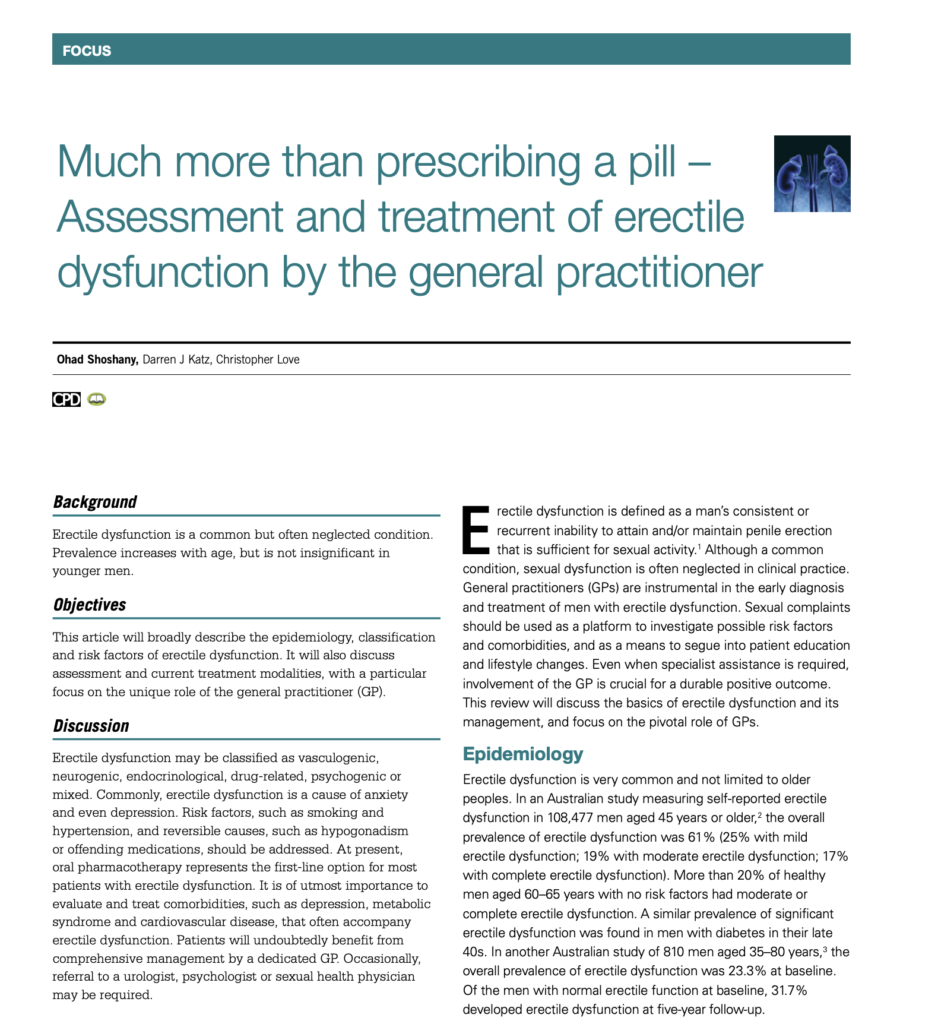Lower urinary tract symptoms and Benign Prostatic Hyperplasia
Old problems, new solutions. Benign prostatic hyperplasia is a common cause of lower urinary tract symptoms (LUTS). Newer medications and minimally invasive treatments are now

Erectile dysfunction is a common but often neglected condition. Prevalence increases with age, but is not insignificant in younger men.
This article will broadly describe the epidemiology, classification and risk factors of erectile dysfunction. It will also discuss assessment and current treatment modalities, with a particular focus on the unique role of the general practitioner (GP).
Erectile dysfunction may be classified as vasculogenic, neurogenic, endocrinological, drug-related, psychogenic or mixed. Commonly, erectile dysfunction is a cause of anxiety and even depression. Risk factors, such as smoking and hypertension, and reversible causes, such as hypogonadism or offending medications, should be addressed. At present, oral pharmacotherapy represents the first-line option for most patients with erectile dysfunction. It is of utmost importance to evaluate and treat comorbidities, such as depression, metabolic syndrome and cardiovascular disease, that often accompany erectile dysfunction. Patients will undoubtedly benefit from comprehensive management by a dedicated GP. Occasionally, referral to a urologist, psychologist or sexual health physician may be required.
Old problems, new solutions. Benign prostatic hyperplasia is a common cause of lower urinary tract symptoms (LUTS). Newer medications and minimally invasive treatments are now
The development of a bent erection, usually for no obvious reason, causes real concern to men who develop Peyronie’s disease (PD), and there is reluctance
Peyronie’s disease is a relatively common condition in urological practice, but is still poorly identified and understood in the wider medical community and by most
Male urinary incontinence adversely affects health-related quality of life and is associated with significant psychosexual and financial burden. The two most common forms of male
Erectile dysfunction is a common but often neglected condition. Prevalence increases with age, but is not insignificant in younger men. This article will broadly describe
Anatomy and Physiology The physiology of erections is a complex interaction between the penile anatomical compartments, vessels and nerves. The penile anatomical compartments involved in
Listen and subscribe to Below the Belt with Dr Christopher Love now on Apple Podcasts, Spotify or Google Podcasts.